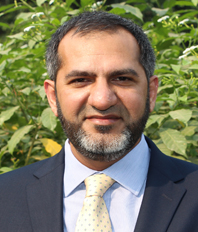Workshops
Workshop on "Management of Business School Faculty"
Venue: Lahore School of Economics, Lahore | City: Lahore, Pakistan
|
Workshop- “Management of Business School Faculty” |
|||
|
Purpose: |
|||
| Human resource management in itself is a challenging task regardless of the type of organization, however, for a Business School, it is even a bigger challenge because of the multiplicity of engagements that business school faculty are expected to demonstrate. As contended by Herbert A. Simon, Business Schools themselves are very interesting specimens for Organization theory and therefore the importance and complexity of Human Resource Management for Business Schools is as momentous as it is for the other organizations, if not higher. Despite being most aware about Organization Theory and HR Practices, Business Schools often find it challenging to deal with their own Human Resource, particularly the Faculty. On the other hand managing faculty meritoriously is of extreme importance because the objectives that Business Schools envisage in their vision and mission, may not be realized optimally if the faculty is not properly governed and/or passionate enough to pursue the organizational goals. It is also not unusual that Business Schools find their Faculty, in many situations, non-cooperative and confronted against the changes deemed important and inevitable by the other stakeholders. In such circumstances, Human resource management practices immediately become the pivot point to resolve the situation and to take school to the next level. This workshop is meticulously designed to first, make aware those responsible to deal with the faculty of business schools, of different challenges involved in this highly complex and sensitive domain. Secondly to share with them the best practices and an array of acknowledged or out of the box solutions that may work within a particular set of circumstances. The workshop is intended to deliver among its participants the gist of the rich experience of trainers having vast experience of working with the faculty of accredited Business Schools nationally and internationally. |
|||
|
Objectives: |
|||
|
|||
|
Learning Outcomes: |
|||
|
The participants will develop an understanding of the followings by the end of this workshop:
|
|||
|
Who Should Attend: |
|||
|
The workshop is designed for:
|
|||
|
Consultants: |
|||

Dr. Kamran Ali Chatha |
 Dr. Syed Kumail Abbas Rizvi Dr. Syed Kumail Abbas RizviAssociate Professor & Group Coordinator (Finance) Lahore School of Economics, Lahore |
||
|
Transfers, Refunds & Replacement: |
|||
|
|||
|
Notes: |
|||
** If unforeseen circumstances occurs during the workshop and one day before the scheduled workshop, NBEAC will not refund the registration fee. |
|||
The workshop was intended to deliver among its participants the gist of the rich experience of trainers having vast experience of working with the faculty of accredited Business Schools nationally and internationally.
The workshop content was developed in such a way that it made participants aware about their responsibilities to deal with the faculty of business schools of different challenges involved in this highly complex and sensitive domain. An analysis was presented on different leadership styles along with discussions on the six major leadership styles followed by different international and national business schools with their pros and cons.
The consultants also shared the best practices and an array of acknowledged and provided solutions that may work within a particular set of circumstances. Extensive activities regarding Categorization of Business School’s Climate and Leadership style were also conducted and discussions were carried out regarding the better leadership style for progression of business schools. It was generally acknowledged by the consultants that both regions (public and private) have a strong potential to develop their faculty by following different styles of leadership and management that should be introduced by governing bodies.
The workshop was attended by more than 35 participants representing business schools in different sectors, regions and cities of Pakistan. The consultants for this workshop were Dr. Syed Kumail Abbas Rizvi (Professor, Lahore School of Economics, Lahore) and Dr. Kamran Ali Chatha, (Associate Professor of Operations Management, Suleman Dawood School of Business, Lahore University of Management Sciences (LUMS).
Punjab, Pakistan
Map
Powered by iCagenda
About NBEAC
NBEAC has three main functions: accreditation, training and networking. In its accreditation function, it develops and implements standards to improve the quality of business education in Pakistan. In its training function, it provides opportunities to faculty and managers to learn about quality standards and related matters. In its networking function, it provides a forum for business education professionals to learn from each other through conferences and seminars.


